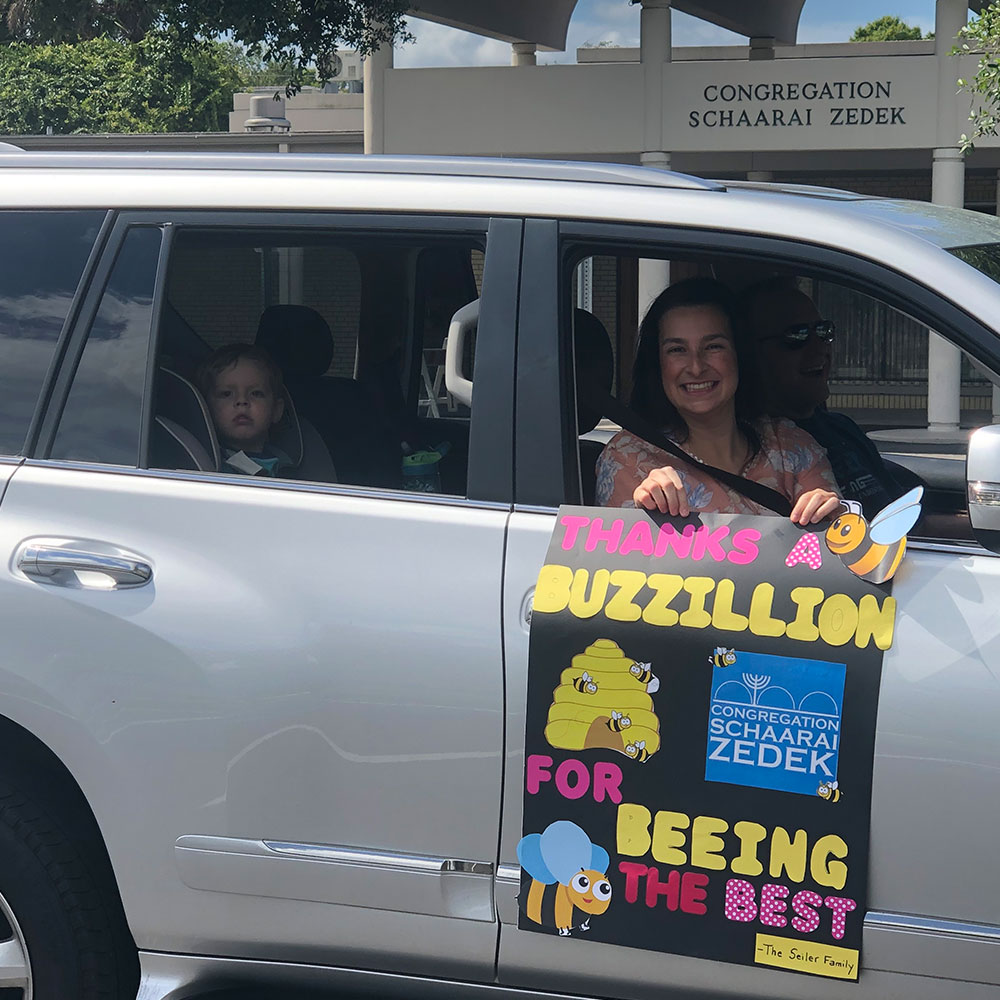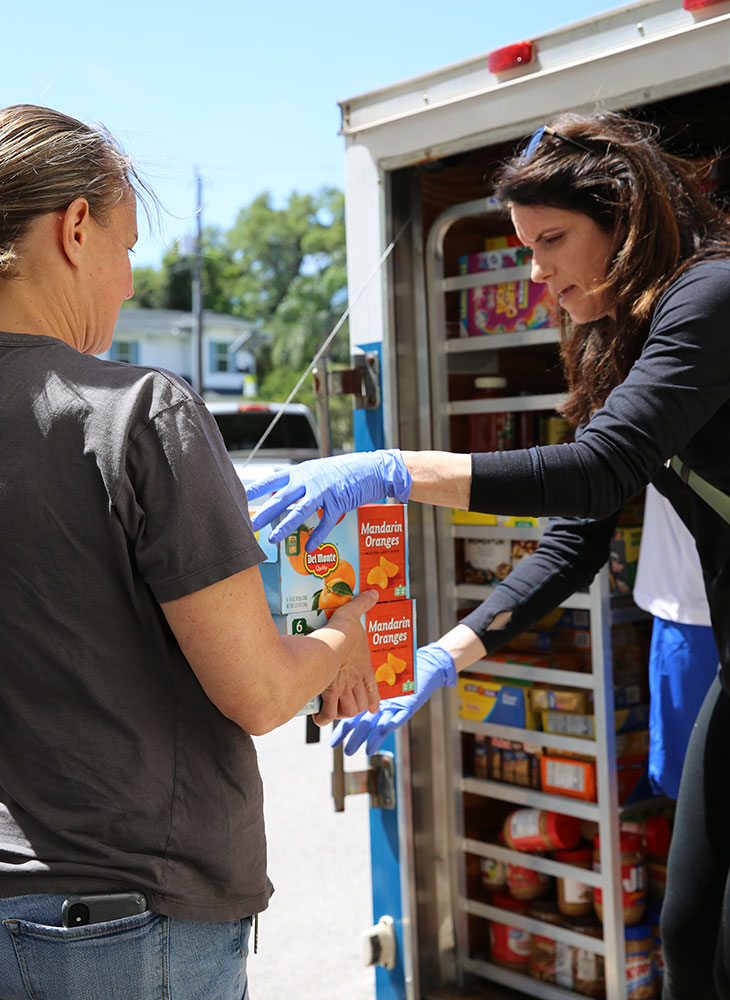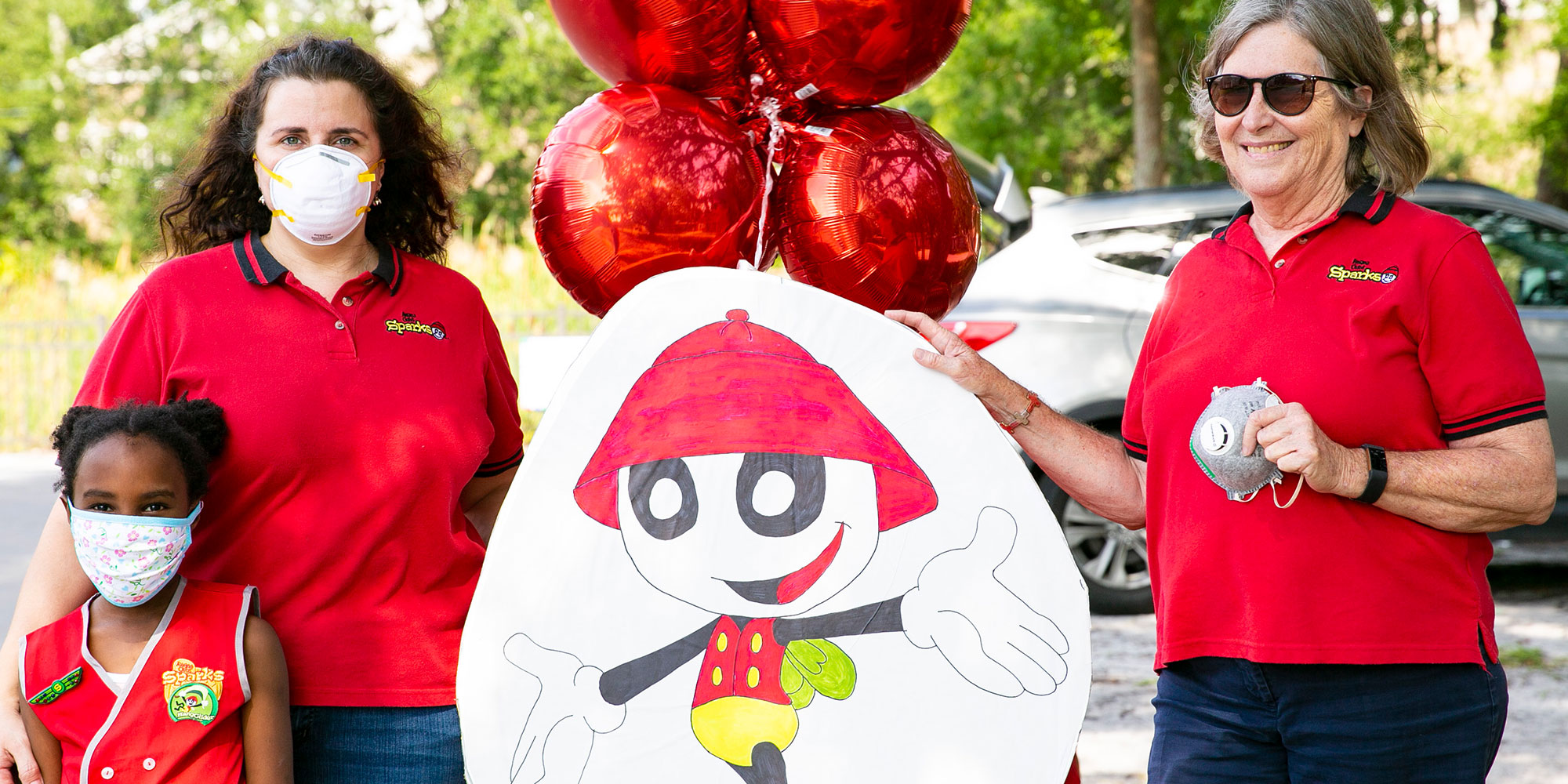Despite being the place that many people turn to for solace and hope during a challenging time, houses of worship have also had to grapple with the fact that bringing people together could be harmful in the midst of a global pandemic. In response, local religious organizations like Congregation Schaarai Zedek in Palma Ceia and South Tampa Fellowship have had to find new ways to practice their faiths while also fulfilling their missions to help those in need.
“There is a Jewish teaching that to save a life is to save an entire world,” says Rabbi Joel Simon. “To see so many people putting others ahead of themselves has been, to me, a real beautiful thing.”
Simon and his clergy at Congregation Schaarai Zedek had been livestreaming their services online for years, but this was the first time they’ve had to broadcast from home. Like many parents, he notes, he’s had to figure out how to balance work and family in the same space.
“A new challenge is figuring out what to do with my 4-year-old and my 3-year-old while doing the service,” Simon says with a laugh. “They’ve gotten to watch a little more TV than normal, but I think that’s true for so many parents.”

The synagogue has also moved classes and group meetings to Zoom; Simon has even performed a wedding through the video-calling software.
Likewise, South Tampa Fellowship has embraced the internet to connect with its members. The church has livestreamed its Sunday morning service for some time, says pastor JJ Johnson, but they’ve found their average viewership has skyrocketed from a few hundred viewers each week to 20,000 or more. They’ve also found success (and higher attendance) with holding bible study, ministries and other group meetings on Zoom. Some of the digital offerings will be permanent, Johnson says.
“I think the convenience of not having to get up, get ready, get in your car and drive somewhere… It’s really made it convenient for people,” he adds.

Both organizations made it a priority to find ways to connect with their congregants offline, too. In the early days of the pandemic, the South Tampa Fellowship leadership team called every family in their database to see how they could best provide support, whether it be with money, food or prayer. Simon and his clergy have organized a series of “Drive Through Shabbat Schmooze” events, where families could drive to the synagogue parking lot and have socially distanced face-to-face conversations with people they haven’t seen in weeks or months. Initially inspired by the kinds of car parades seen in other stories throughout this magazine, Simon realized it would be impossible to pass by the homes of the synagogue’s 1,300 families, stretching from Lutz to FishHawk to St. Petersburg. Instead of going to their homes, he invited the synagogue’s families to their spiritual home.
“People, even though they couldn’t get out of their cars, they were just excited to be at the synagogue again,” he says.
Providing comfort has sometimes been a challenge. Both Johnson and Simon have performed funeral services during the pandemic, memorializing individuals in front of a small handful of close family instead of the hundreds that would have come to the service in a normal time. It’s been strange to not be able to hug or hold the hand of someone going through illness or suffering with pain.

South Tampa Fellowship pivoted some of its emergency resources typically used for hurricanes or other natural disasters to respond to community needs during the pandemic. The church’s “Go Team” is used to cleaning up yards or removing fallen trees, but they’ve recently been making sure food gets to those who need it most.
“We emptied the ‘Go Team’ trailer of all of this yard and disaster work equipment and immediately started a mobile food pantry where we started feeding close to 400 families a week with hot meals and groceries,” Johnson says.
For both organizations, the last few months has put a renewed focus on what it is they do best: Providing care and support for others.
“I feel, as a synagogue, if we can help families become stronger during this time, that’s an extremely valuable opportunity and something that we should all be thinking about as we’re all spending time at home,” Simon adds.



